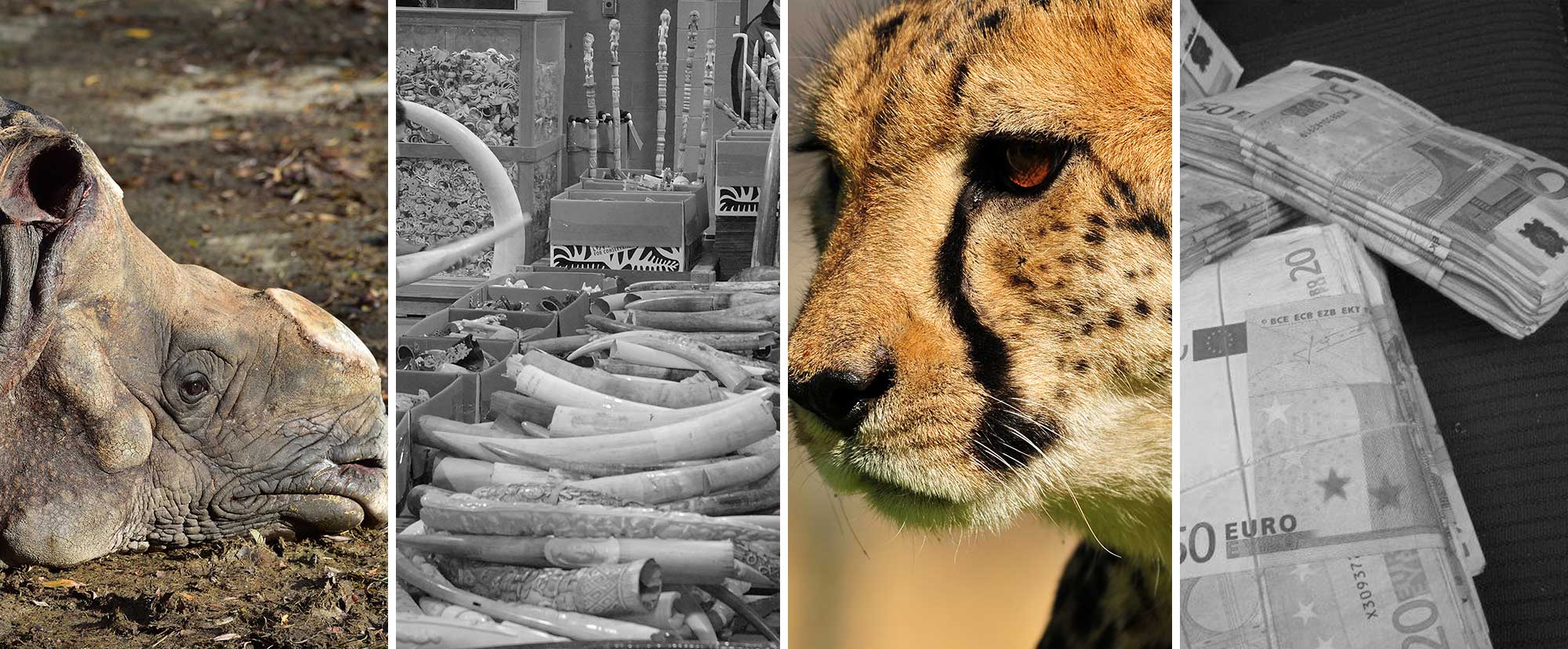3 min read
Money laundering and the illegal wildlife trade: what can banks do?
![]() AML RightSource
:
February 11, 2020
AML RightSource
:
February 11, 2020

Following up from our first post, Amy Guttman looks further into money laundering through the illegal wildlife trade and what banks can do to help.
South Africa is considered ground zero in the fight against wildlife crime and money laundering because of its rich biodiversity and habitat. The country instituted a moratorium on the trade of rhino horn in 2009 and there are strict laws regulating the amount of permits that can be issued to trophy hunters, who organise hunts as sport, and take home their kill as trophies. South Africa employs a coordinated approach to wildlife trafficking with involvement from the South African Revenue Service, Intelligence, and other agencies. The rhino horn trade and other illegal poaching of animals is seen as a threat to the nation’s wildlife economy, considered critical to socio-economic transformation.
Despite increased efforts and a coordinated approach, Conservation Action Trust reported last year, wildlife crime in South Africa has increased over the past ten years with a noticeable increase in the past five.
Permits typically cost thousands of dollars and countries can allocate proceeds at their discretion. Several governments use the money to fund anti-poaching efforts and support local communities.
What can banks do?
A number of African and Asian countries have identified wildlife trafficking as a serious crime under national anti-money laundering legislation, but organisations like TRAFFIC say deeper, broader investigations are required. Many countries are hindered by legislative loopholes, weak penalties and toothless oversight.
TRAFFIC’s Richard Thomas says, “Banks already comply with a customer due diligence. They’re also given a list of names they can check against. One of the most powerful deterrents that can be imposed is seizure of assets for those convicted of wildlife crimes. That’s potentially a greater deterrent than a prison sentence.”
Steve Galster, founder of Freeland, an anti-trafficking organisation based in Bangkok, has helped crack major wildlife trafficking cases, believes banks and technology can play a far bigger role in tracing and disrupting the flow of money laundered from wildlife crime.
“They all have the know-your-customer and compliance measures in place in regards to things like terrorism, some in drug trafficking and others human trafficking so simply adding wildlife trafficking to the dashboard shouldn’t be difficult. But, it currently requires a policy change for banks to do it. It’s probably better for banks to do that sooner, rather than later because it’s one of those things that will probably be legislated shortly anyway. There’s lots of talk that the UN and those that have historically designed measures to reduce money laundering and activities that threaten global security are talking about this. We trust that the banking community would want to help and they can help a lot. From our investing and research we’ve learned that almost all of the largest wildlife trafficking operations – the syndicates moving lots of lions, tigers, bears, etc they’re all doing it through legally registered companies. So, they’re committing lots of offences through regular financial transactions. They’re masking them under legal trade.”
Galster would like to see banks and governments implement technology to improve investigations, and also reward agencies and individuals who assist in reporting information.
Freeland is already using AI, a machine learning technology, and blockchain in cooperation with governments to improve financial crime investigations.
Galster describes how it works: “Let’s say I give information that turns out to be a critical nugget in a larger investigation…they could use the digital tracks and reward me. We’re playing with this now; we’re issuing digital tokens, with blockchain technology, for people to provide information and it’s an immutable token. We’re using software where, if you have a trafficker who has data on their phone, you can extract the data and it can literally save months of time on an investigation.”
For Glaster, the key to successful counter-trafficking could be the use of technology to incentivize counter poaching.
“There’s been so much emphasis on making wildlife trafficking more punishable. It’s not working, so I think we need to work more on rewarding counter-trafficking and one of the ways to do that is through anti-money laundering, because it doesn’t just allow for the freezing and seizing of assets. You can set up a conservation restitution fund and reward the agency that does the good work. The money is there. We just need to make the traffickers fund the counter trafficking.”

